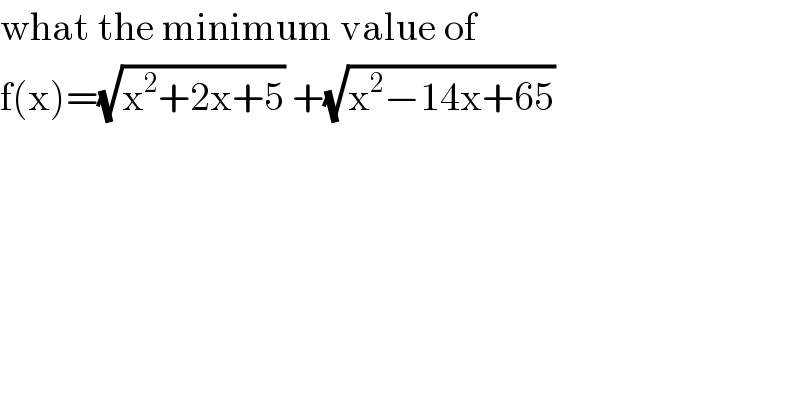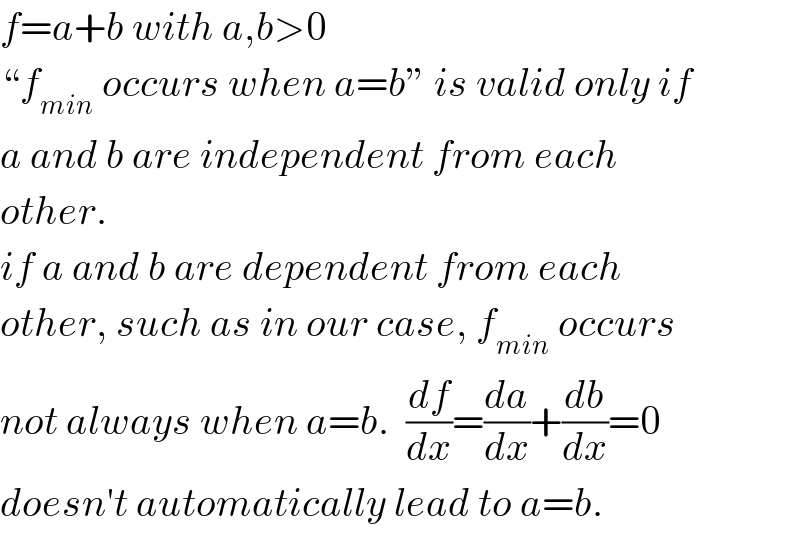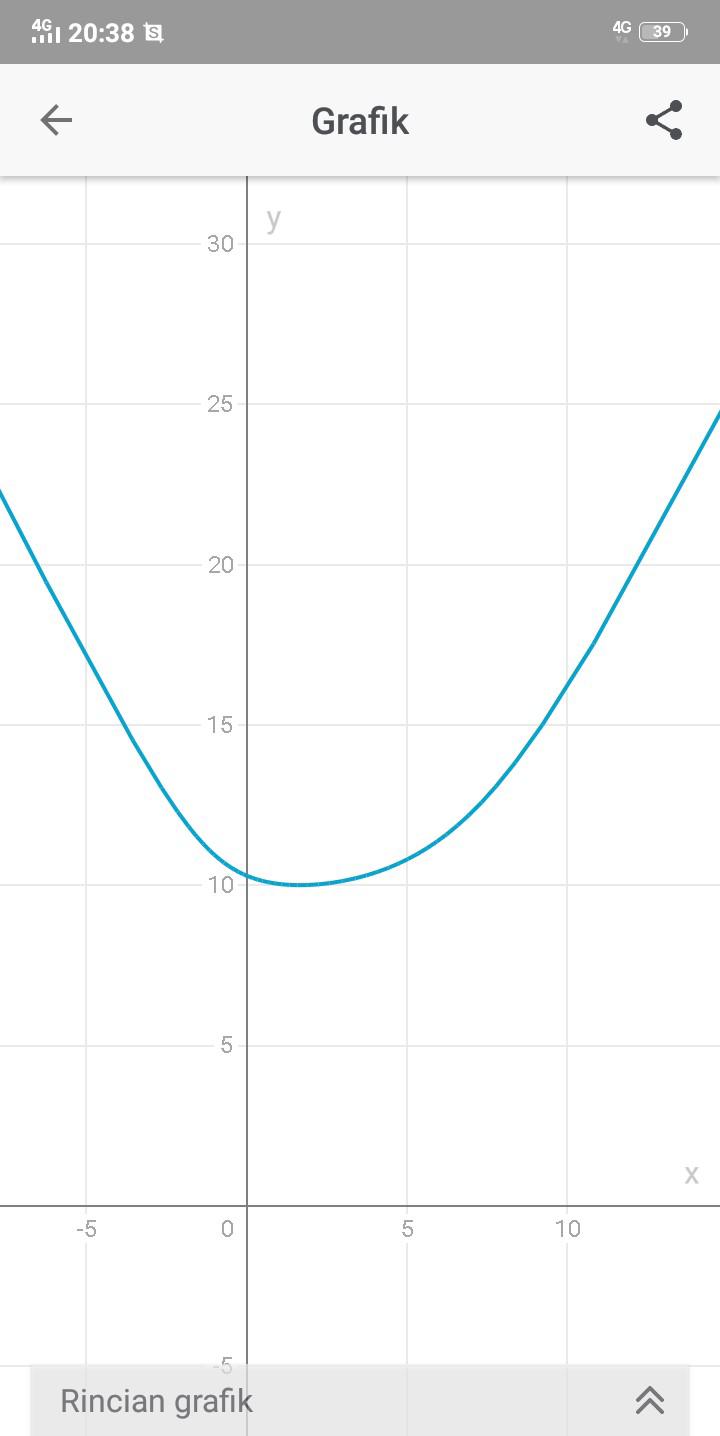
Question and Answers Forum
Previous in Permutation and Combination Next in Permutation and Combination
Question Number 79472 by jagoll last updated on 25/Jan/20

Commented by john santu last updated on 25/Jan/20

Commented by mr W last updated on 25/Jan/20

Commented by jagoll last updated on 25/Jan/20

Commented by jagoll last updated on 25/Jan/20

Commented by jagoll last updated on 25/Jan/20

